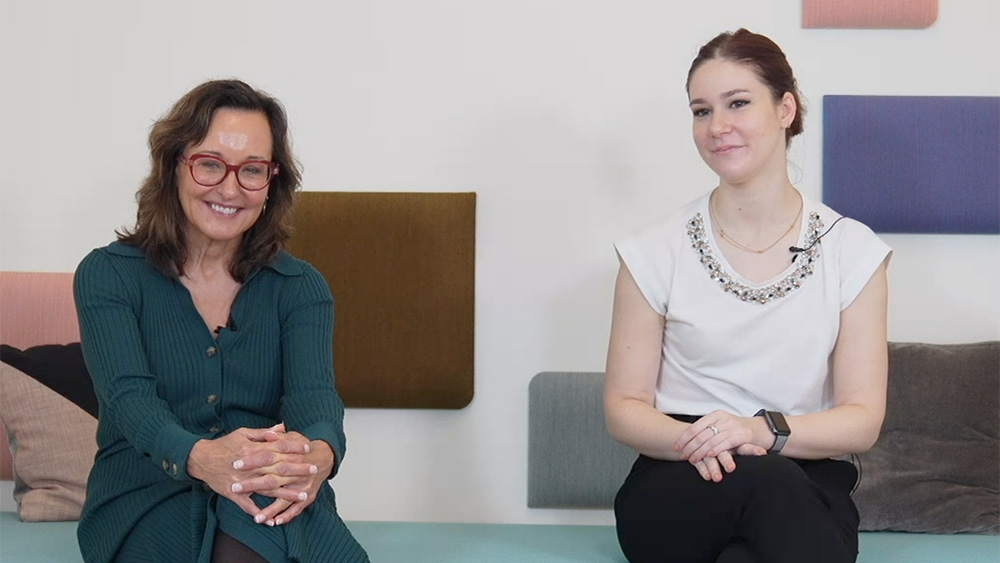
Zena Burgess, Ph.D., FAPS, FAICD, CEO of the Australian Psychological Society, and Laura Caprioli, growth program and stakeholder manager at VisitBritain, discussed their mutual consideration of soft skills when recruiting new employees during a Convene podcast.
Talk about the need to start using AI as a co-pilot to increase efficiency at work has become too loud to ignore. According to the World Economic Forum, 85 million jobs will be impacted by AI by 2030 “and millions of new jobs will be created that don’t yet exist,” wrote Bernard Marr, futurist and author of Generative AI in Practice: 100+ Amazing Ways Generative Artificial Intelligence Is Changing Business and Society, in a recent Forbes article.
But as the use of AI continues to grow in the workplace, so too will the need to cultivate the human touch through soft skills, such as the ability to strategize, problem solve, exercise emotional intelligence, and to think both critically and creatively, Marr said.

Bernard Marr
“Things that machines can’t yet do will become exponentially more valuable,” he wrote. “Teamwork, leadership, and mentorship all require explicitly human skills,” such as the ability to recognize and respond appropriately to colleagues to collaborate and build relationships, Marr said.
Partnership building — a critical skill for event organizers — is another example of a common work scenario that demands tact, something AI can’t yet understand, Marr said. “An AI’s lack of emotional intelligence means it will always be at a disadvantage when it comes to the subtleties of negotiating, building rapport, and establishing the alignment of mission and values” Marr wrote, “which are critical to effective partnering.”
Not only are soft skills necessary when working with outside partners, the way they are prioritized by an organization internally speaks to its culture, and that starts with the hiring process. In a Convene podcast episode recorded at Convening EMEA 2023 in Copenhagen, Laura Caprioli, growth program and stakeholder manager at VisitBritain and Zena Burgess, Ph.D., FAPS, FAICD, CEO of the Australian Psychological Society, discussed their mutual consideration of soft skills when recruiting new employees.
“I think it’s an awful term — ‘soft skills.’ It makes it sound like it’s not that important and yet, it’s critically important,” Burgess told Convene podcast host and Digital Media Editor Magdalina Atanassova. “When you look at senior management recruitment, it’s usually those skills and the strategic thinking that lead to people being appointed.” In fact, Burgess said, she hires people based on their interpersonal skills and “openness to learning, not their industry background.”
To get an understanding of a job candidate’s soft skills, Burgess employs behavioral interviewing — which asks about the candidate’s real-life experiences rather than hypothetical scenarios to determine their competencies — as well as testing regarding business acumen and emotional intelligence.
“I also don’t run interviews in a formal way. They’re conversational,” usually with a variety of different people from within the organization, Burgess said. “I think it’s really important to meet the people you might be working with, as well as the people you’ll be reporting to.”
Caprioli takes a similar cross-departmental approach to interviewing in order to get a sense of a prospective employee’s soft skills — and at VisitBritain, that includes a multi-generational recruitment panel. “I never really want to do something like a very formal, structured discussion,” she said, preferring “more relaxed conversations, that [make] a person really comfortable, because once you are comfortable, that’s when you start to open up.”
Identifying a candidate’s soft skills is a key indicator of if they’ll be a good fit for her team, Caprioli said. “I recently started recruiting new people on our team, and what I really look at most of the time are soft skills — their willingness to learn, their flexibility, if they’re curious,” and if they demonstrate “emotional intelligence.”
Listen to the full episode below or visit the Convene Podcast page, where you will find all our episodes.
Casey Gale is managing editor of Convene.
